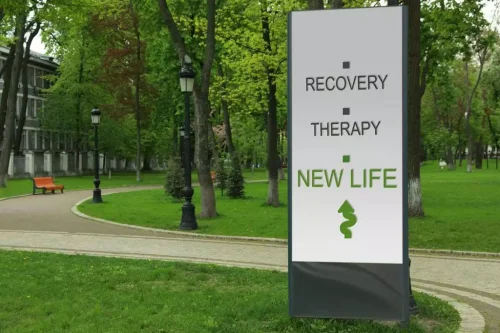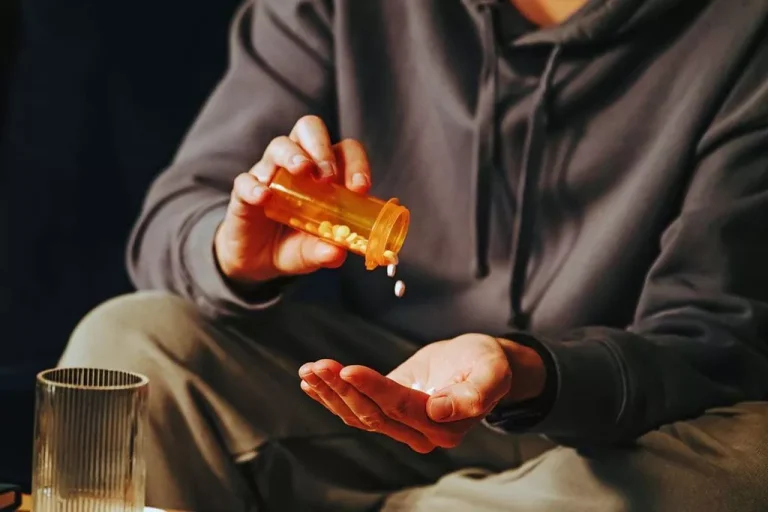The medication is non-addictive, and is often taken for periods of three months or more. Some people continue to take naltrexone in targeted doses indefinitely, following approaches like the Sinclair Method. One common mistake for those who are new to alcohol and drug recovery is substituting a new compulsive behavior for their old one. People new to recovery can find themselves approaching their new diet, exercise program, job, and even participation in support groups with a compulsion that echoes addiction. If these emotions become excessive, they can hold you back from recovery. If you are trying to maintain a sober lifestyle, those feelings can become toxic and contribute to relapse if you don't deal with them properly.
Things That Inevitably Happen to Your Personal Life When You Get Sober

"I feel good today but was very irritable last night. My clothes are fitting better, and my face isn't as puffy." Intense cravings and irritability are commonly reported after day 12. "The whites of my eyes are white again, my urine is starting to look normal, and my bowel movements are getting normal. My energy level and mental alertness are way up, and it's only getting better." "I can't believe the luxury of sleep! After a really hard time, I slept for two nights! Not all night, but great sleep." "Feeling much better. Very slight discomfort in the chest occasionally. No sweating. Disturbed sleep? Yes. But I guess in a few days, I should be fine." "Still having cravings and thinking a lot about drinking. I'm so exhausted, though, and nauseated, I would probably get sick if I had a drink. I have noticed the cravings for sugar. Raw sugar snap peas take the edge off that."

How can I navigate social situations without alcohol?

Alcohol provides a surge of dopamine and when that’s taken away, you initially might feel sad, but that usually fades within a few months, Kobashigawa said. Sometimes giving up drinking involves anhedonia, which is an inability to find pleasure in the activities you once enjoyed. Researchers at UC Berkeley say a daily 20-second ‘micropractice’ can help reduce stress and improve mental health.

How Does Alcohol Affect the Body?
These enzymes generate FAEE by condensing alcohol with a fatty acid (e.g., oleic acid). FAEE can bind to and accumulate in mitochondria to impair cell function in the pancreas and the heart,35 which is also rich in FAEE synthases. Spending sober time becoming familiar with your body intimately can help you better communicate your needs to someone else when you feel ready for that step. That being said, you might not be at a place where you want people to know you’re not drinking, and that’s OK. You can provide an excuse, like that you’re on antibiotics, or you aren’t feeling great or want to feel fresh for something you have going on the next day. It’s important to remember that you never have to give yourself up to make other people comfortable—ever.
Recovery groups everywhere understand the importance of fun in sobriety. It’s why you’ll often hear of get-togethers, camping trips, sober events, and sober sports leagues, and a host of other fun outlets once you get exposed to most recovery groups. We recommend that you participate in as many of these fun events as you have time for. Like other types of self care (working out, meditation, skincare, intuiting eating), finding sustainable habits that work for you is key. And while care can feel preventative, not responsive, it means you’re setting yourself up to confront life’s challenges as your most perseverant, present self. Take our short alcohol quiz to learn where you fall on the drinking spectrum and if you might benefit from quitting or cutting back on alcohol.
- Alcohol consumption increases the production of stomach acids, which can irritate the stomach lining and lead to nausea, vomiting, and heartburn.
- If you’ve experienced an extended relapse, you’ll likely benefit from medical detox, where any withdrawal symptoms are managed under medical supervision.
- Sometimes giving up drinking involves anhedonia, which is an inability to find pleasure in the activities you once enjoyed.
- It’s a subversive, hardcore choice to take your life into your own hands.
Whether you’re stating a one-sentence response (“I don’t drink”) or using a small excuse, the only thing to consider is whether you are comfortable, and whether your boundaries are being upheld. When I was drinking, it never occurred to me that I was an introvert. I would have classified myself as someone who loved to be around people and go out with them at night. Thinking back to before I was sober, I usually had to drink to be around people. When I stopped drinking, not only did my recovery dictate that I needed lots of time to myself, lots of self-care, and lots of nights in, I discovered that I was, in fact, someone who relishes in alone time.
Thinking Clearly, Fewer Cravings
By finding alternative activities to do, engaging in meaningful conversations, and focusing on the present moment, individuals can create fulfilling experiences without the need for alcohol. Programs like sober living homes, motivational phone calls, alumni programs, and mutual-help groups provide a level of support that can continue in the short-term or as needed for the rest of your life. As explained in a study from the Journal of Substance Abuse Treatment, even something as simple as a motivational texting program can better your chances of avoiding relapse. It is generally the first step in a more comprehensive treatment plan.
Step 7: Participate in Aftercare Programs
- The average liver in a healthy adult metabolizes one drink in approximately two hours.
- For a period it was, “I’m an alcoholic,” and that tended to silence anyone (for clarification, I no longer identify as an alcoholic).
- Milestones in sobriety (e.g., 24 hours, a month, three months) are celebrated to recognize the incredible hard work that’s been accomplished through staying sober for a certain length of time.
- Because this makes drinking less pleasurable, people are less likely to crave alcohol.
- Even if you have sworn not to touch alcohol again, it can be tempting to look at the non-alcoholic beer and wine equivalents.
As in humans, fatty liver (steatosis) is the earliest pathophysiological change that occurs in rodent livers after chronic alcohol administration. In rodent models, with continued https://ecosoberhouse.com/ drinking, hepatic steatosis can worsen to further injury such as alcoholic steatohepatitis (ASH). Seek medical assistance if your physical symptoms last for a week or longer.
You can and will get through it, and some relief is right around the corner. Here’s advice from clinicians about how to get through this challenging period. Moreover, if you’re taking naltrexone as part of your treatment program, it’s possible that you feel nausea in the early days of your prescription. While naltrexone is generally well tolerated, nausea drinking again after sobriety and headaches are the most common side effects. You can check in with your physician about side effect management, and if possible, look to manage side effects for several weeks to experience the positive effects and weigh the side effects and benefits. Some people feel that relapse prevention is about saying no right before they take a drink.

What’s the Difference Between the Types of Relapses (Slips, Lapses & Relapses)?
- A healthcare provider can prescribe medications that can help you manage symptoms such as shakes, anxiety, and insomnia.
- By surrounding themselves with positive influences, recovering alcoholics can find encouragement and reinforcement in their commitment to sobriety.
- For example, you might believe that you can’t quit, that recovery takes too much effort, and that you won’t enjoy life as much without alcohol.
Relapsing is when the individual returns to drinking or using drugs after a period of sobriety. Relapsing is when an individual returns to drinking or using drugs after a period of sobriety, which differs from a lapse where they briefly drink but then quickly stop again. Mindfulness techniques, such as mindfulness meditation, walking meditation, STOP practice, body scans, and breathing exercises like five-finger breathing can help individuals stay mindful and focused during their recovery journey. Cultivating the seven core attitudes of mindfulness – non-judging, patience, beginner’s mind, trust, non-striving, acceptance, and letting go – can further strengthen one’s ability to manage cravings and triggers.